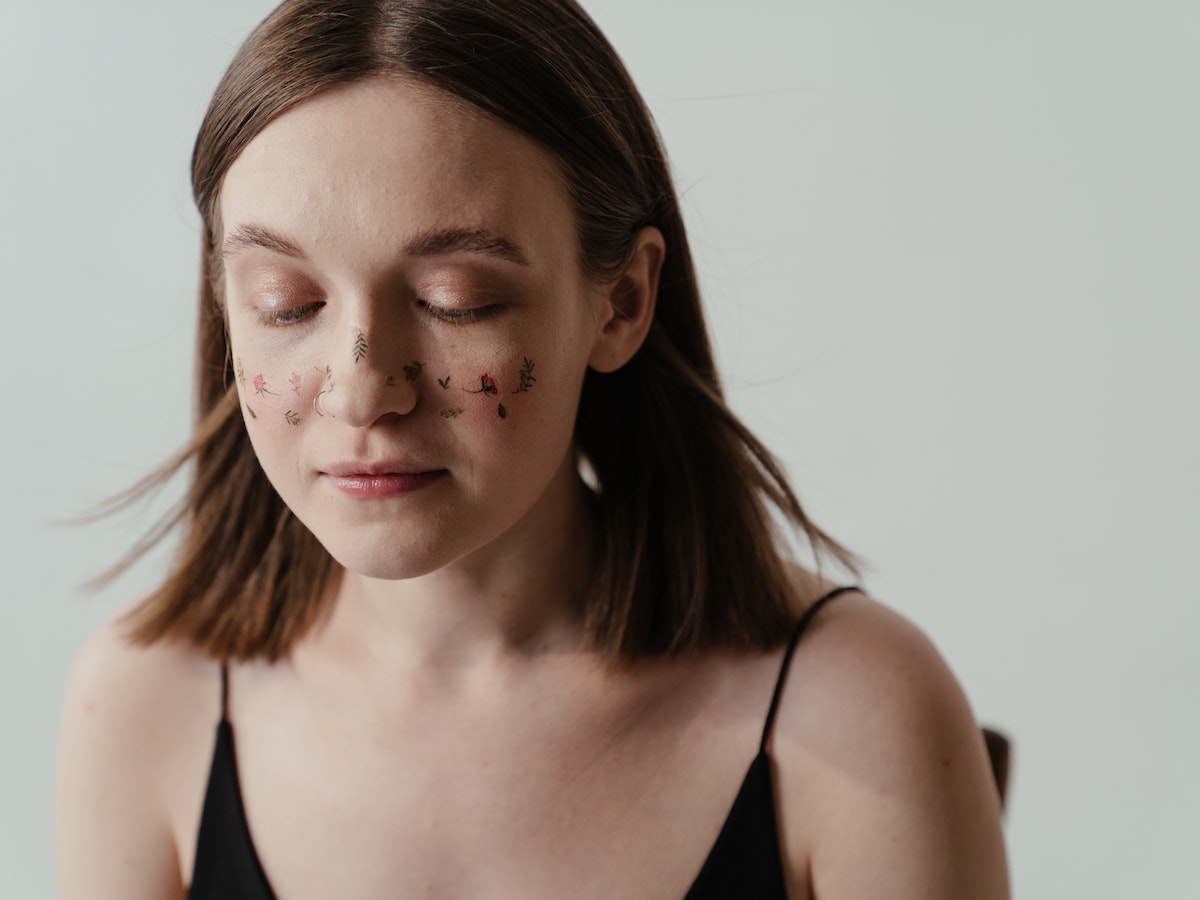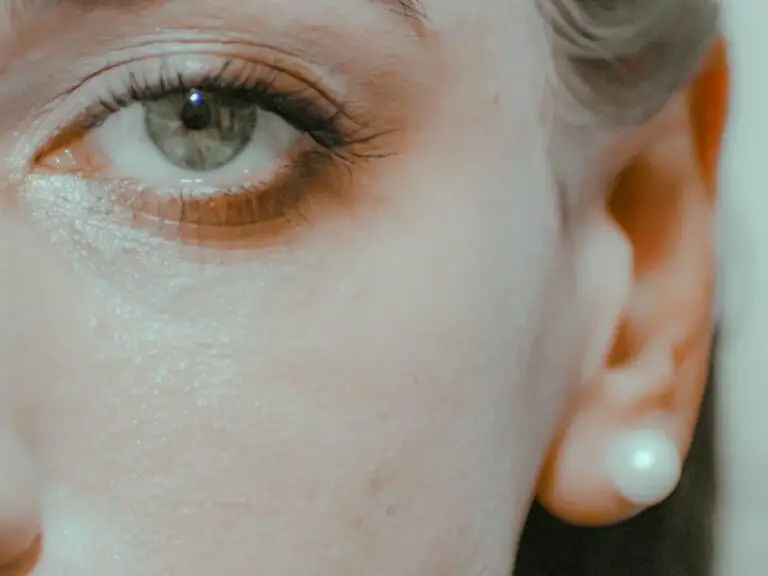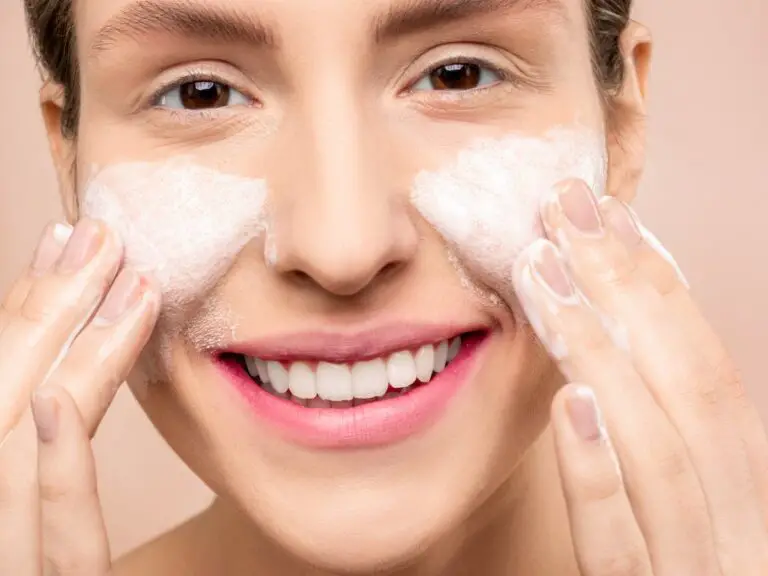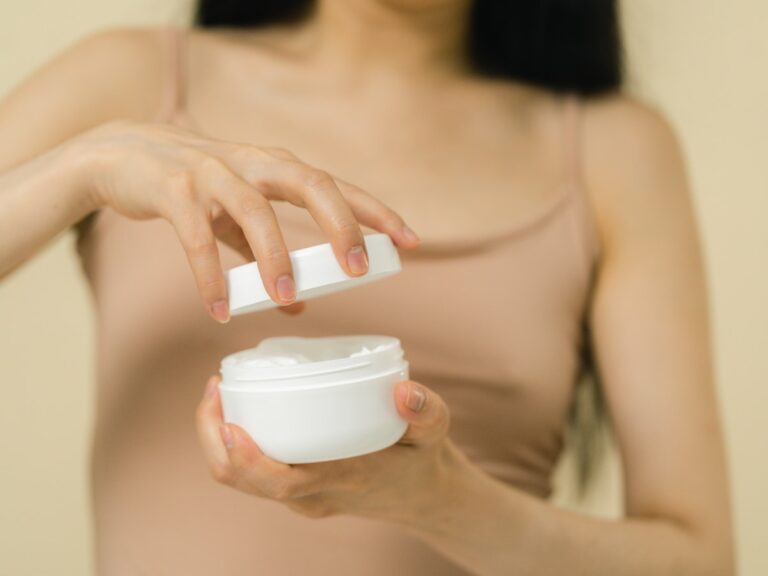Can You Tattoo Over Acne Scars? (Complete Guide)
Medically Reviewed by;
Dr. Kashif
General Physician
Senior Medical Writer
Are you sick of hiding your acne scars and looking for a way to feel good about yourself again? Well, there is an option that might surprise you: tattooing over acne scars. Yes, you did hear correctly!
In recent years, tattooing has become more than just a way to decorate the body. It has become a strong way to express yourself and even hide scars. Because tattooing over acne scars methods have improved and more and more skilled artists specialize in scar cover-ups, it is now possible to turn your acne scars into beautiful works of art. But how does it work? Can tattoos hide those annoying memories of how hard you worked to eliminate acne? In this piece, we’ll look at tattooing over acne scars, from how it’s done to the risks and benefits it might have.
So, if you’re interested in this new way to accept flaws in your skin, keep reading to learn about the art and options of tattooing over acne scars.
Table of Contents
Understanding Acne Scars
Acne scars are a common result of serious acne. They show where the skin has been damaged in the past. These scars can be anywhere from small depressions to deep, pitted holes, and they can greatly affect a person’s sense of self-worth. Understanding the different kinds of acne scars is important if you want to know if tattooing is a good way to hide scars.
Atrophic scars are a type of acne scar that is caused by the loss of tissue. These scars often look like shallow pits or “ice pick” marks on the skin’s surface. Hypertrophic scars, also called keloid scars, happen when the body makes too much collagen while healing, making the scar thicker and higher. When it comes to tattooing, each type of acne scar is different, so it’s important to talk to a professional tattoo artist who specializes in scar cover-ups to figure out the best way to go about it.
Can You Tattoo Over Acne Scars?
Yes, it is possible to tattoo over acne scars. But it’s important to remember that not every scar can be tattooed. Getting a tattoo over acne scars can work, but it depends on many things, like the type and texture of the scars, how deep they are, and the person’s skin type and health. To find out if a tattoo can cover your acne scars, you should talk to a skilled tattoo artist with scar cover-ups experience.
Tattooing over acne scars means putting ink into the scar tissue to make a shape that helps the scar look like it’s part of the rest of the skin. By adding color and texture to the scarred areas, tattooing can help make the marks less noticeable. But it’s important to have realistic expectations because the results will depend on the scars and the design picked by the person.
Factors to Consider before Tattooing over Acne Scars
There are a few things you should think about before getting a tattoo over your acne scars. First, it’s important to know that tattoos are a lasting way to change your body. Even though tattoo removal methods have improved in recent years, they can be expensive, take a long time, and may not always get rid of the tattoo completely. It’s important to think carefully about your choice and make sure you’re okay with having a tattoo for life.
Another thing to consider is how it might affect the health of your skin. Before getting a tattoo, people with acne should talk to a doctor because their skin is often more sensitive and prone to irritation. They can look at the state of your skin and tell you if tattooing over your acne scars is a good idea. Also, to avoid problems, it’s important to talk about any allergies or responses you might have to the tattoo pigments.
Lastly, having reasonable hopes about how things will turn out is important. Even though getting a tattoo can help hide acne scars, it may not eliminate them. Getting a tattoo over acne scars can work, but it depends on many things, like the type and shape of the scars, the design chosen, and the tattoo artist’s skill. It’s important to meet with a skilled tattoo artist specializing in scar cover-ups to discuss your goals and determine the best way to go about your situation.
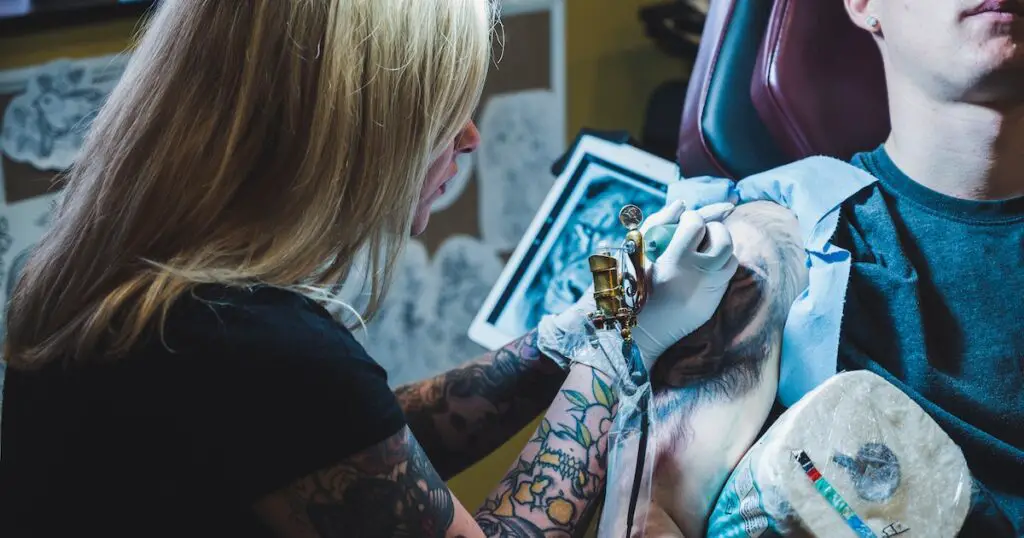
Finding a Skilled Tattoo Artist
Finding a skilled and experienced tattoo artist is important if you want to cover up acne scars with a tattoo. Not all tattoo artists are good at covering up scars because it takes special skills and knowledge. To find a tattoo artist who is good at covering up scars, you need to do a lot of study and ask for recommendations from people you trust.
Start by looking for tattoo artists with scar cover-up pictures in their portfolios. Look at the “before” and “after” pictures of clients they’ve worked with to get an idea of their skills and what they can do. Also, read reviews and comments from their past clients to get an idea of how professional they are, how clean they are, and how happy their customers are. Meeting with the tattoo artist for a meeting is also important because it lets you talk about what you want, ask questions, and see how good they are at covering up scars.
Preparing Your Skin for the Tattooing Process
Getting your skin ready for the tattooing process is important if you want the best results and as few problems as possible. Your tattoo artist will give you specific directions that are made for you, but here are some general rules:
Keep your skin moist: Use a hypoallergenic, fragrance-free lotion on your acne scars every day before your tattoo appointment. A well-hydrated skin can give the tattoo artist a better surface to work on and help the ink spread more evenly.
Stay out of the sun: Keep your skin from getting too much sun because UV rays can hurt and slow healing. Apply a broad-spectrum sunscreen with a high SPF and wear protective clothing if you have to be outside.
Stay hydrated: Drink a lot of water to keep your face from the inside out hydrated. Well-hydrated skin is stronger and can heal faster.
Avoid picking or popping pimples: It’s important to fight the urge to pick at or pop any acne or pimples already there. Doing so can cause scarring and other problems during the tattooing process.
Stick to a good skincare routine: Establish a regular skin care practice that includes gentle cleansing, exfoliation, and using products that don’t clog pores. This can help improve your skin’s general health and make it a better place to get a tattoo.
By following these rules and any other directions your tattoo artist gives you, you can help make sure your skin is in the best shape possible for the process.
Aftercare for Tattooed Acne Scars
Aftercare is very important for tattooed acne scars to heal properly and last long. Your tattoo artist will give you specific aftercare directions based on your needs and the area that was tattooed, but here are some general tips:
Keep the tattoo clean: Wash the tattooed area gently with lukewarm water and a gentle soap that doesn’t have any scent. Avoid cleaning or rubbing the tattooed area, as this can cause irritation and slow healing.
Apply a thin layer of ointment: After washing, use a cream; your tattoo artist suggested keeping the tattooed area moist and safe. Use a clean, disposable applicator or your clean hands to avoid getting germs on the tattoo.
Don’t pick or scratch: Fighting the desire to pick or scratch the tattooed area is important. Doing so can slow down the healing process and cause scarring or an infection.
Keep out of the sun: Keep the tattooed area out of the sun as much as possible since UV rays can fade the tattoo and cause skin damage. Apply a broad-spectrum sunscreen with a high SPF and wear protective clothing if you have to be outside.
Don’t swim or do things that make you sweat a lot: Don’t swim or do things that make you sweat a lot until the tattooed area is completely fixed. Long-term contact with water or too much moisture can slow the healing process and make an infection more likely to happen.
By following these treatment instructions and any other instructions your tattoo artist gives you, you can help ensure that your tattooed acne scars heal properly and last as long as possible.

Risks and Complications of Tattooing over Acne Scars
Even though getting a tattoo over acne scars can be a powerful and life-changing experience, it’s important to be aware of the risks and problems that could come up. Some risks that could happen are:
Infection: Getting a tattoo involves making holes in the skin, which can let germs in and raise the risk of getting an infection. To lower this risk, following aftercare guidelines and maintaining good hygiene habits are important.
Allergic reactions: Some people may be allergic to the colors used in tattoos. Before getting a tattoo, you should tell your artist about any allergens or sensitivities you have and, if necessary, do a patch test.
Unsatisfactory results: Skilled tattoo artists can do amazing things to cover up scars, but there is always a chance that the results won’t be what you want. It’s important to have clear goals and talk to your tattoo artist about what you want to happen during the consultation process.
Even more scarring: In rare cases, getting a tattoo over an acne scar could cause more bruising or a hypertrophic/keloid scar to form. Before getting a tattoo, you should talk to a doctor to determine your skin suitability and reduce this risk.
Before you get a tattoo over your acne scars, you need to know all the possible risks and problems. Talk to a skilled tattoo artist and a doctor about your situation so they can evaluate it and help you figure out the best way to handle it.
Personal Experiences and Success Stories
People thinking about getting a tattoo over their acne scars can learn from their experiences and success stories. This new way of covering scars has helped many people feel stronger and more confident. Hearing from people who have been through the process can help ease worries and give a more accurate picture of what could happen.
Online platforms, social media groups, and websites that are all about covering up scars are great ways to meet other people who have done the same thing. Talk to them, ask them questions, and listen to what they say. But it’s important to remember that everyone’s skin and scars are different, so the effects may differ for each person.
If you can, try to find personal stories and success stories from people with acne scars and skin types that are similar to yours. This can give you a better idea of what to expect and help you decide whether to get a tattoo over your acne scars.
Conclusion
Tattooing over acne scars is a creative and unique way to accept your skin’s flaws and regain confidence. With the help of talented tattoo artists who specialize in covering up scars, you can turn your acne scars into beautiful works of art. But it’s important to think carefully about all the factors, talk to experts, and have reasonable hopes about the results.
Getting a tattoo over acne scars is a personal choice that needs careful thought, study, and consultation. Whether you get a tattoo to cover your acne scars or look into other choices, the most important thing is finding a solution that makes you feel comfortable and confident in your skin. Remember that your scars are part of your unique journey; accepting them can be a powerful act of self-love and acceptance.
FAQs
Tattooing over flat and mature scars is generally feasible, as they provide a stable canvas for tattoo application. These scars are typically more receptive to ink and can result in a better tattoo outcome. It’s recommended to consult with an experienced tattoo artist who can assess the specific characteristics of the scar and provide personalized advice on whether it is suitable for tattooing.
Tattooing over raised, hypertrophic, or keloid scars is generally not recommended, as it can potentially worsen their appearance and cause further irritation. These types of scars have an unpredictable healing response and may not hold ink well. It’s advisable to consult with an experienced tattoo artist who can assess the specific characteristics of the scar and provide guidance on whether tattooing is feasible and safe in your particular case.
Tattooing over dark spots is possible, but it may present challenges in achieving desired tattoo visibility and color vibrancy. Dark spots can affect the overall appearance of the tattoo, and the artist may need to adjust the design or use specific techniques to ensure proper coverage. Consulting with a professional tattoo artist is crucial to assess the suitability of tattooing over dark spots, considering factors like spot size, color, and location, in order to achieve the desired outcome.
Tattooing over moles is generally not recommended due to potential health concerns. Moles can be a sign of skin abnormalities, and altering their appearance through tattooing may hinder future monitoring for changes that could indicate skin cancer. It’s advisable to consult with a dermatologist who can assess the mole and provide guidance on its suitability for tattooing, ensuring proper health precautions are taken into consideration.
Cover-up tattoos may not necessarily be more painful than regular tattoos. The pain experienced during a tattoo depends on various factors such as individual pain tolerance, tattoo placement, and the size of the design. Cover-up tattoos may require additional work to incorporate and hide the existing tattoo, which could potentially cause more discomfort. However, the pain level varies from person to person, and it is best to consult with a professional tattoo artist who can provide personalized insights based on the specific cover-up tattoo design and placement.
Disclaimer: This article is for educational purposes only, and does not substitute any medical advice. Always consult a qualified healthcare professional for personalized advice before trying new treatments or medications.

General Physician
Senior Medical Writer
